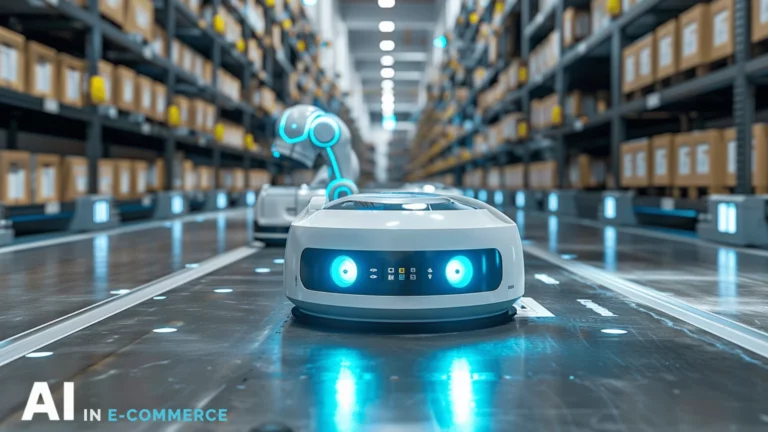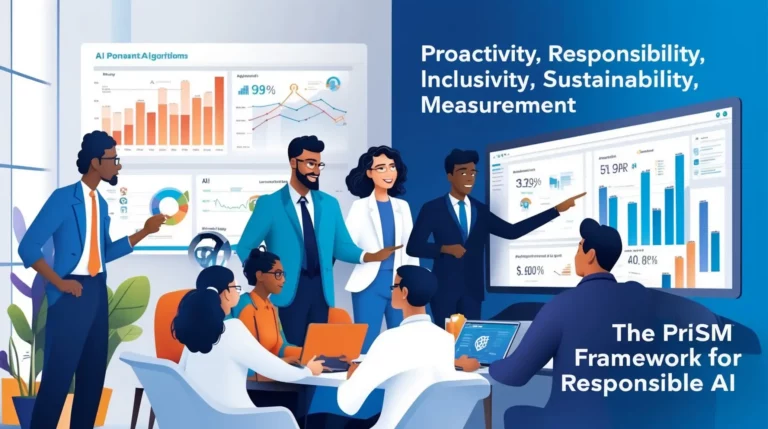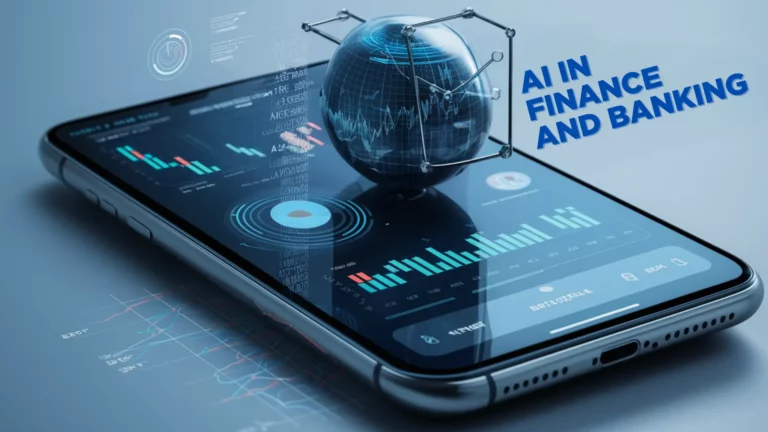How AI in Software Engineering is Reshaping the Future of Coding
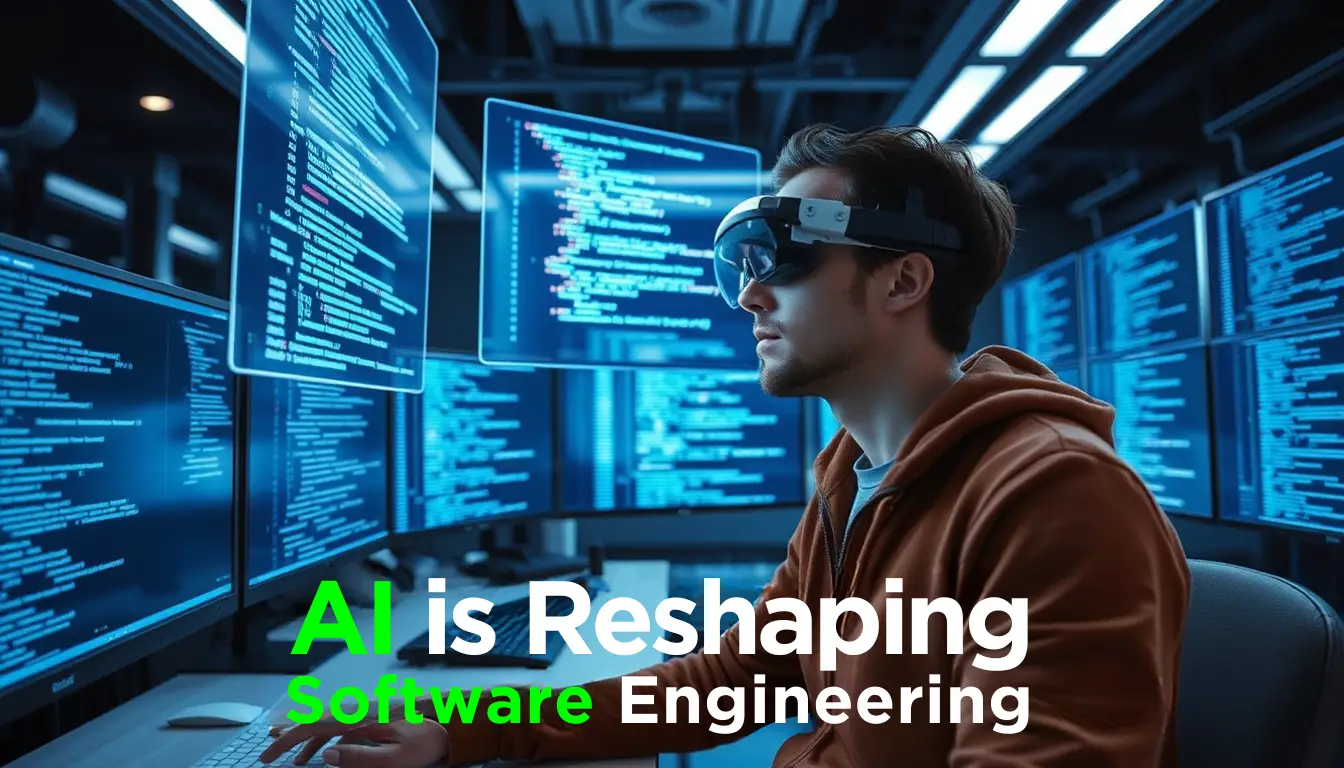
AI in Software Engineering, artificial intelligence, and software development are reshaping the tech landscape. Machine learning and automation are transforming how we develop software, making processes faster, smarter, and more efficient. Imagine having an intelligent assistant that suggests code snippets or even fixes bugs before they become a headache—that’s the power of AI at work.
In this guide, we’ll explore:
- The rise of AI in software engineering
- How AI tools enhance productivity and efficiency
- Real-world examples of successful AI integration
- The shifting skill requirements for modern software engineers
- Strategies for upskilling with AI technologies
Ready to dive into the fascinating world of AI-driven software engineering? Let’s get started!
Our audience supports Ahcrypto. When you click on the links on our site, we may earn an affiliate commission at no extra cost to you. Learn More.
The Rise of AI in Software Engineering
Artificial Intelligence (AI) is changing the game in software engineering. It’s bringing in advanced tools and methods that greatly improve productivity and efficiency. In software development, AI in Software Engineering uses machine learning algorithms and data analysis to automate tasks, make predictions, and offer intelligent suggestions.
Leading Examples of AI in Software Development
AI-assisted software development tools like GitHub Copilot and Amazon CodeWhisperer are leading examples of how AI is being integrated into coding practices:
1. GitHub Copilot
This AI-powered code completion tool, developed by GitHub in collaboration with OpenAI, assists developers by suggesting whole lines or blocks of code based on the current context. It leverages a vast dataset from public repositories to predict what you’re likely to write next, making coding faster and reducing the chances of errors.
2. Amazon CodeWhisperer
Similarly, Amazon’s CodeWhisperer provides real-time code suggestions by analyzing the context and intent behind a developer’s input. It helps in writing clean, efficient code snippets quickly, streamlining the development process.
Benefits of AI Tools in Software Engineering
These tools save time and help maintain higher code quality by offering optimized solutions and catching potential issues early. The rise of AI in software engineering signifies a shift towards more intelligent and automated coding environments, allowing developers to focus on creativity and problem-solving rather than repetitive tasks.
Automation and Efficiency: The Role of AI Tools in Software Development Processes
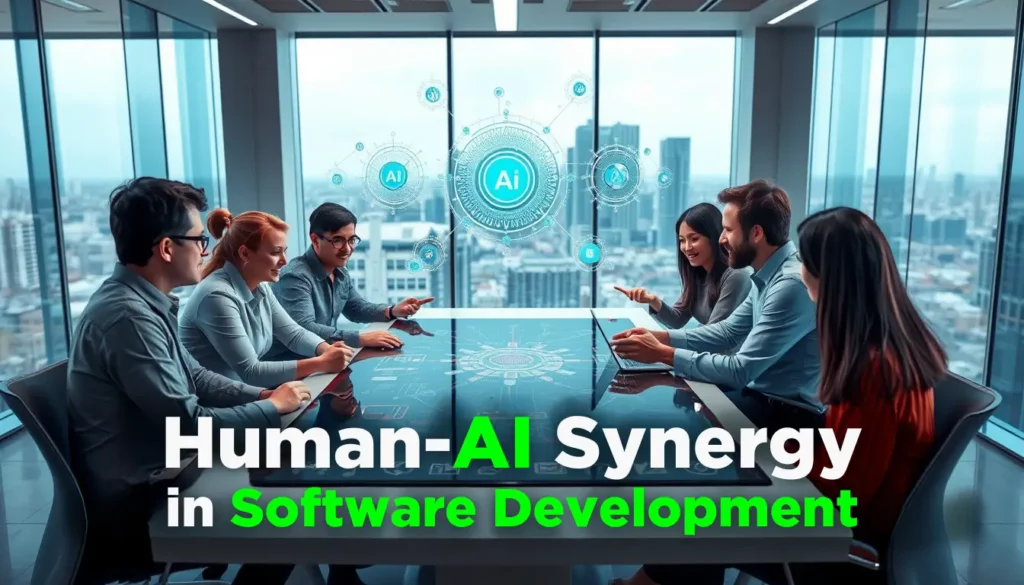
AI is changing the game in software development by making processes more efficient with automated testing and bug detection systems powered by machine learning. These tools are created to boost productivity and ensure better code quality, making a developer’s job a little easier.
Automated Testing Tools
- Automated testing tools use AI to run extensive test cases with minimal human involvement.
- Popular tools like Selenium and Test.ai use machine learning algorithms to identify test scenarios, generate test cases, and even predict potential points of failure.
- This speeds up the testing process and greatly decreases the chances of human error.
Bug Detection Systems
Bug detection systems powered by AI can find problems in the codebase much quicker than traditional methods.
- DeepCode and SonarQube are excellent examples of machine learning that can be used to analyze code for vulnerabilities and inefficiencies.
- These tools scan repositories for patterns that may indicate bugs, suggesting fixes before the code goes into production.
- Developers can concentrate on more complicated tasks while these systems handle routine checks.
Benefits of AI-Driven Approaches
- Better Code Quality: Automated tools ensure testing and bug detection consistency, leading to cleaner, more reliable code.
- Less Manual Work: AI-driven systems handle repetitive tasks, allowing developers to focus on innovation.
- Time Savings: Faster identification and resolution of issues shorten development cycles, enabling quicker time-to-market for applications.
These AI-driven methods increase efficiency and empower developers to create high-quality software with less manual work.
By adopting these technologies, teams can significantly enhance their workflow while upholding a high standard of code integrity.
Real-World Examples of Automation Success with AI Tools
The impact of AI in software engineering is best illustrated through real success stories with AI tools. Companies like Skyscanner and Meta have significantly leveraged AI to enhance their development processes.
Skyscanner’s Bug Detection
Skyscanner, a leading travel fare aggregator, utilizes machine learning for bug detection. By integrating AI-powered systems, they can identify bugs in code more efficiently than traditional methods. This proactive approach helps:
- Reduce downtime: Faster detection means quicker fixes.
- Improve user experience: Fewer bugs translate to smoother user interactions.
Meta’s Automated Testing Frameworks
At Meta (formerly Facebook), automated testing frameworks powered by AI have transformed their development pipeline. Key benefits observed include:
- Enhanced productivity: Engineers spend less time on repetitive testing tasks.
- Higher code quality: Continuous testing ensures robust code before deployment.
These examples highlight how adopting AI tools boosts productivity and elevates the overall quality of software products. The future of software engineering leans towards harnessing the power of AI for seamless and efficient development workflows.
Changing Skill Requirements for Software Engineers in the Age of AI
As artificial intelligence continues to reshape software engineering, the skills required for engineers are changing rapidly. Proficiency in neural networks and deep learning frameworks such as TensorFlow and PyTorch has become essential. These tools are crucial for creating AI-driven applications and automating complex tasks.
Key Skills for Software Engineers in the Age of AI
Here are two key skills that software engineers need to develop to thrive in the age of AI:
- Neural Networks: Understanding the architecture of neural networks is crucial. It includes knowledge of different types of layers, activation functions, and training algorithms.
- Deep Learning Frameworks: Familiarity with frameworks like TensorFlow and PyTorch is vital. These platforms offer pre-built modules that simplify the process of building, training, and deploying machine learning models.
Learning these skills enhances an engineer’s ability to contribute to AI projects and opens up new career opportunities in an increasingly AI-centric tech landscape.
Adapting to the New Landscape
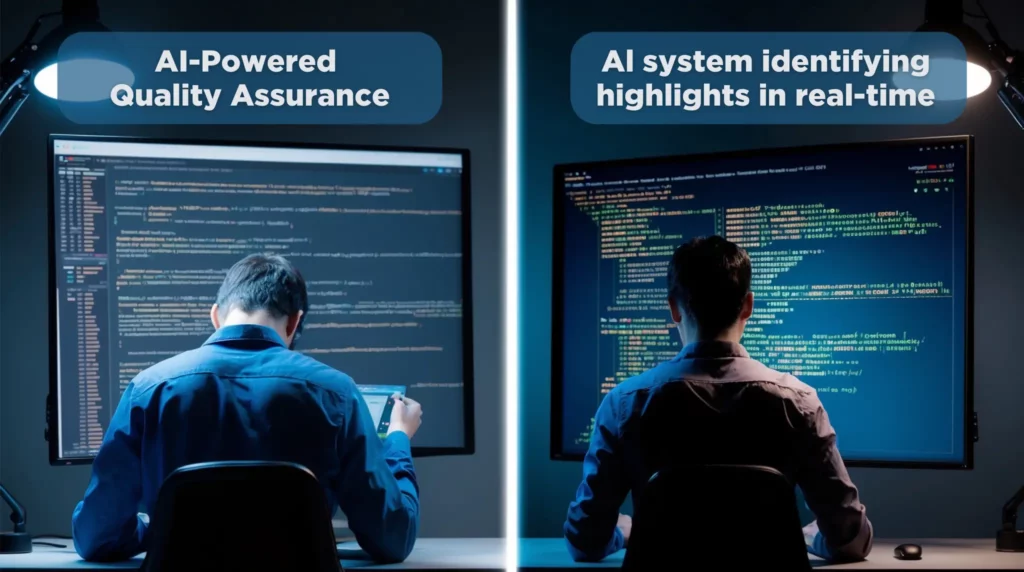
Strategies for Current Software Engineers to Upskill with AI Integration in Coding
As a software engineer, staying ahead of the curve and continuously improving your skills is important. With the rise of artificial intelligence (AI) in coding, upskilling in this area can open up new opportunities and make you more valuable in the industry. Here are some strategies to help you navigate this changing landscape and integrate AI into your skill set:
1. Online Courses
Numerous online platforms offer courses specifically focused on AI in Software Engineering and AI in software development. These courses can give you a comprehensive understanding of the subject and help you apply it to your work. Some popular platforms include:
- Coursera
- edX
- Udemy
Consider enrolling in courses such as “AI for Everyone” by Andrew Ng or “Deep Learning Specialization” to gain a solid foundation in AI concepts and techniques.
2. Practical Projects
One of the best ways to learn is by doing. Engage in hands-on projects that allow you to apply what you’ve learned about AI in real-world scenarios. Platforms like GitHub and Kaggle offer opportunities to work on open-source projects or participate in data science competitions. These experiences enhance your skills and provide tangible evidence of your abilities when showcasing your portfolio.
3. Interactive Tutorials
Sometimes, theory alone isn’t enough – practical application is key. Websites like Codecademy and LeetCode offer interactive coding challenges incorporating AI concepts into their exercises. By actively solving problems and implementing algorithms, you’ll reinforce your understanding of programming and artificial intelligence.
By investing time in these resources, you’re not just keeping up with industry trends but also gaining a competitive edge in the job market. Employers are increasingly seeking candidates with knowledge of AI in Software Engineering and AI technologies who can leverage them effectively within software development processes.
Remember: learning is an ongoing journey! Stay curious, explore new avenues, and embrace opportunities for growth as they come along.
Job Market Dynamics with AI Integration
Concerns and Future Perspectives for Software Engineers
Concerns About Job Displacement by AI Technologies
The rise of AI in software engineering has sparked understandable concerns about job displacement. Many worry that advanced automation and machine learning tools could replace human roles, leading to a significant shift in the job market. This anxiety isn’t unfounded—AI can indeed handle repetitive tasks with remarkable efficiency, potentially reducing the need for certain manual coding jobs.
The Continued Necessity for Human-Centric Roles
Despite these concerns, human-centric roles remain critical within software engineering. AI technologies excel at processing large datasets and identifying patterns, but they still lack the nuanced understanding and creativity humans bring to problem-solving. Areas requiring innovative thinking, ethical judgment, and complex decision-making continue to rely on skilled engineers.
Key Human-Centric Roles Include:
- Project Management: Overseeing development projects, ensuring timely delivery, and managing team dynamics.
- Ethical AI Development: Addressing biases, privacy issues, and ensuring accountability in AI implementations.
- Creative Problem Solving: Crafting unique solutions to novel challenges during software development.
Embracing Change Through Upskilling
Many industry experts advocate embracing AI in Software Engineering as an opportunity to upskill rather than a threat. Software engineers can enhance their value in the job market by acquiring knowledge in AI technologies such as neural networks or deep learning frameworks like TensorFlow and PyTorch.
“The integration of AI in software development is not about replacing jobs; it’s about augmenting human capabilities to achieve greater efficiency and innovation.” — Tech Industry Expert
Future Trends Shaping Software Engineering with AI
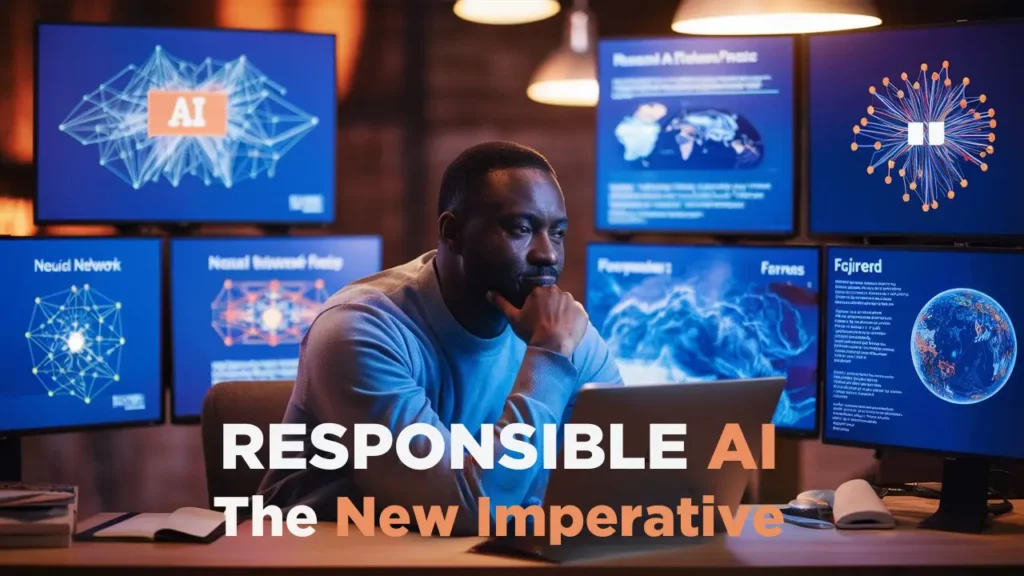
The future of software engineering with AI is set to be revolutionary. Gartner’s forecast predicts a significant increase in adopting AI-driven practices within organizations. Companies are quickly integrating AI into their development workflows, realizing that it improves efficiency and opens up new opportunities for innovation.
Key Predictions:
- According to Gartner, by 2025, over 80% of software projects will incorporate some form of AI or machine learning.
- One of the most exciting trends is ‘Software 2.0.’ Unlike traditional software development, which relies heavily on human-written code, Software 2.0 uses large datasets to train applications. This shift allows for more flexible and adaptable software solutions.
What is ‘Software 2.0’?
Software 2.0 represents a significant change where neural networks and deep learning models become the core of application logic. Instead of manually coding every function, developers train models using large amounts of data:
- For example, self-driving cars use thousands of hours of driving data to learn and improve.
- This approach can lead to more efficient and robust applications since they continuously learn from new data.
AI-powered innovations promise to greatly impact software engineering by increasing automation and enabling more intelligent systems. With this direction, we’re not just seeing small changes but a complete rethinking of how software is created and developed.
Ethical Considerations in the Age of Responsible AI Creation for Software Engineers
Addressing Biases, Privacy Issues, Trust, and Accountability
When it comes to ethical considerations in responsible AI creation, several key concerns stand out:
Addressing Biases and Privacy Issues
AI systems learn from data, which can inadvertently carry biases that reflect historical inequities or prejudices. For instance, if a dataset used to train an AI model contains biased information, the AI’s predictions or decisions could perpetuate those biases. In the context of AI in Software Engineering and concerns about AI replacing software engineers, it’s essential for software engineers to:
- Regularly audit datasets: Ensuring they are diverse and representative.
- Implement fairness algorithms: Techniques like re-weighting or re-sampling can help mitigate bias in training data.
- Conduct bias impact assessments: Evaluating the potential effects of AI decisions on different demographic groups.
Privacy is another major concern. With AI systems processing large amounts of personal data, protecting this information is crucial. Engineers should:
- Use anonymization techniques: Strip identifiable information from datasets.
- Adopt secure data handling practices: Encryption and access controls are vital to safeguard privacy.
The Importance of Trust and Accountability
For AI technologies to be widely accepted, they must be trusted. Building trust involves:
- Transparency: Clearly explaining how AI systems make decisions.
- Explainability: Developing models that can provide understandable reasons for their outputs.
Accountability is equally important. Software engineers bear responsibility for ensuring their creations do not harm users. This includes:
- Ethical guidelines adherence: Following industry standards and best practices.
- Regular performance reviews: Continuously monitoring and improving AI systems to uphold ethical standards.
These challenges underscore the need for a comprehensive approach to ethical AI development that prioritizes fairness, privacy, trust, and accountability. Moreover, as highlighted in a recent study, addressing these ethical considerations can significantly enhance AI technologies’ overall effectiveness and acceptance in society.
Collaboration Beyond Code
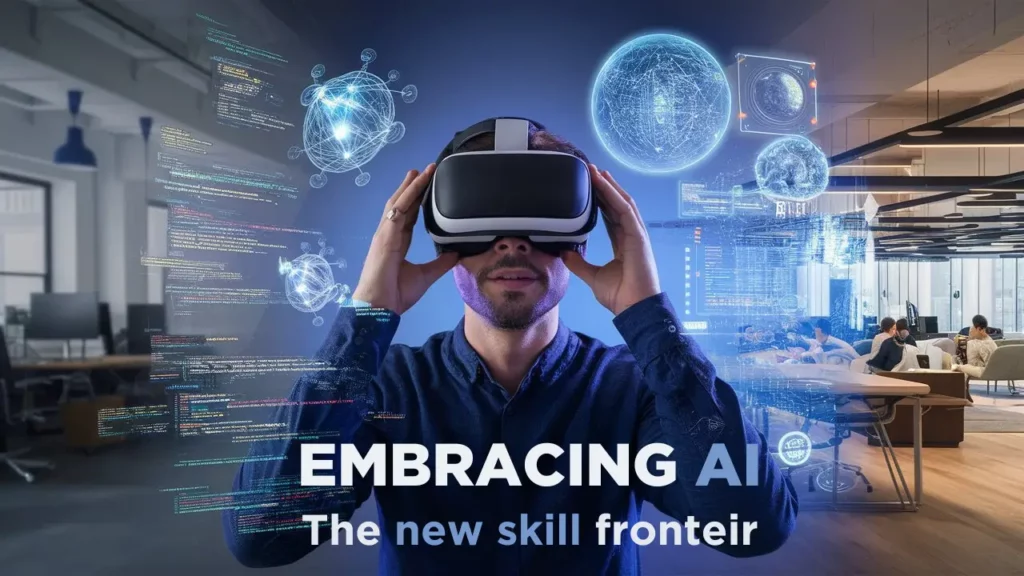
The Need for Effective Communication and Teamwork Skills Among Software Engineers
With the rise of automation and AI in Software Engineering, effective collaboration among software engineers has become more crucial than ever. While technical expertise is paramount, strong communication and teamwork are the glue that holds successful projects together.
Why Communication Matters
Engineers must focus on higher-level problem-solving and innovation in a world where AI tools can handle repetitive coding tasks. This shift necessitates clear communication to:
- Align Objectives: Ensure everyone understands project goals and timelines.
- Share Knowledge: Facilitate the transfer of expertise and insights.
- Resolve Conflicts: Address misunderstandings swiftly to maintain team harmony.
Strategies for Fostering Collaboration
Fostering a collaborative environment requires intentional strategies such as those proposed in this insightful article:
- Regular Stand-ups:
- Daily check-ins help keep everyone on the same page.
- Encourage sharing progress, roadblocks, and next steps.
- Code Reviews:
- Peer reviews not only improve code quality but also enhance learning.
- Create an open environment where feedback is constructive.
- Collaborative Tools:
- Utilize platforms like Slack, Jira, or Trello for seamless communication.
- Implement shared repositories using Git or SVN for version control.
- Team Building Activities:
- Engage in activities that build trust and camaraderie outside work.
- Foster relationships that translate into better teamwork on projects.
- Mentorship Programs:
- Pair experienced engineers with newcomers to accelerate learning, akin to the mentorship strategies outlined in this blog post.
- Encourage knowledge sharing and personal growth.
Creating a culture of collaboration improves productivity and enriches the work experience for all team members. As we navigate through changes in AI in Software Engineering, AI replacing software engineers, artificial intelligence engineering, and generative AI for software, it’s essential to remember that leadership in achieving difficult goals often stems from effective collaboration, as highlighted in this example.
Conclusion
Navigating the transformative effects of AI on software engineering requires more than just technical skills. It calls for:
- Continuous Learning: Stay updated with the latest AI trends and tools.
- Adaptation: Be flexible when integrating new AI methodologies.
- Ethical Responsibility: Prioritize developing AI solutions that are fair, transparent, and accountable.
By embodying these principles, software engineers can thrive in an ever-evolving landscape of AI in Software Engineering, turning challenges into opportunities for innovation and growth.
FAQs (Frequently Asked Questions)

Scott Evans
Hey there, I’m Scott Evans, your friendly guide at AhCrypto! I’m all about breaking down complex SaaS, AI, and tech topics into digestible insights. With me, you’re not just keeping up with the tech world; you’re staying ahead of the curve. Ready to dive into this exciting journey? Let’s get started!


